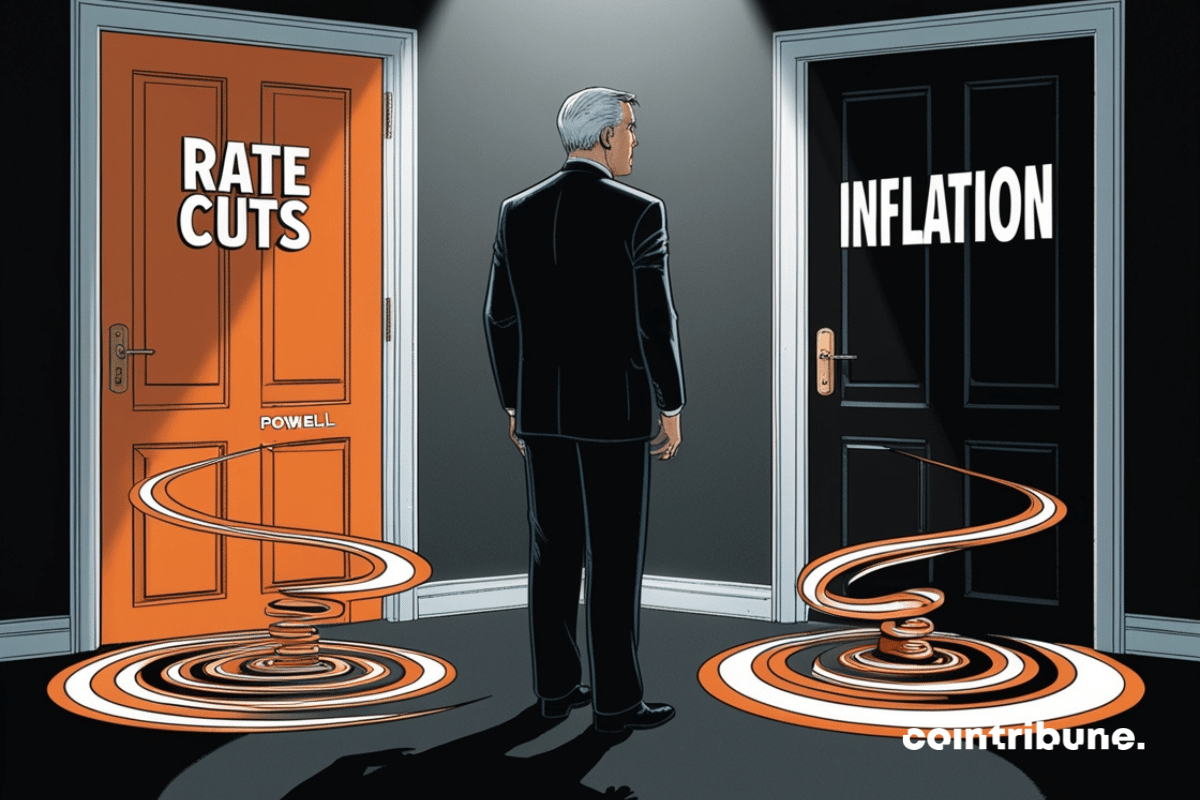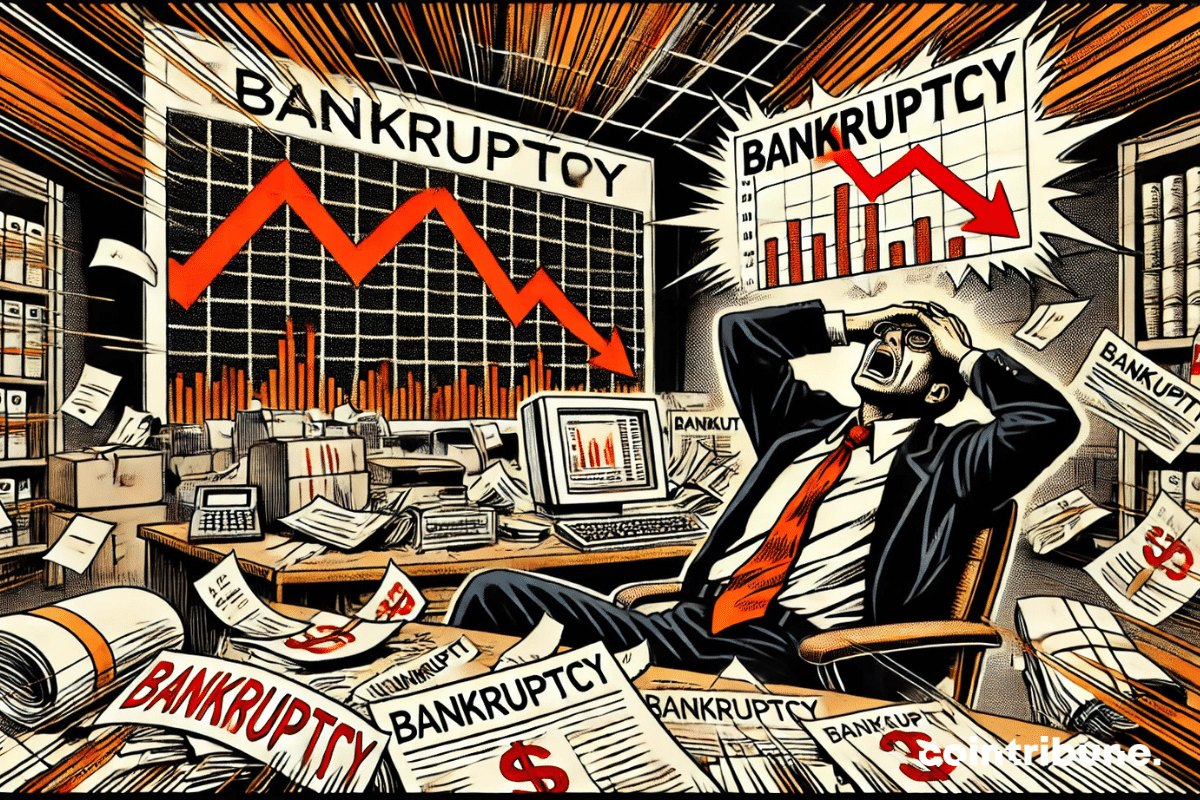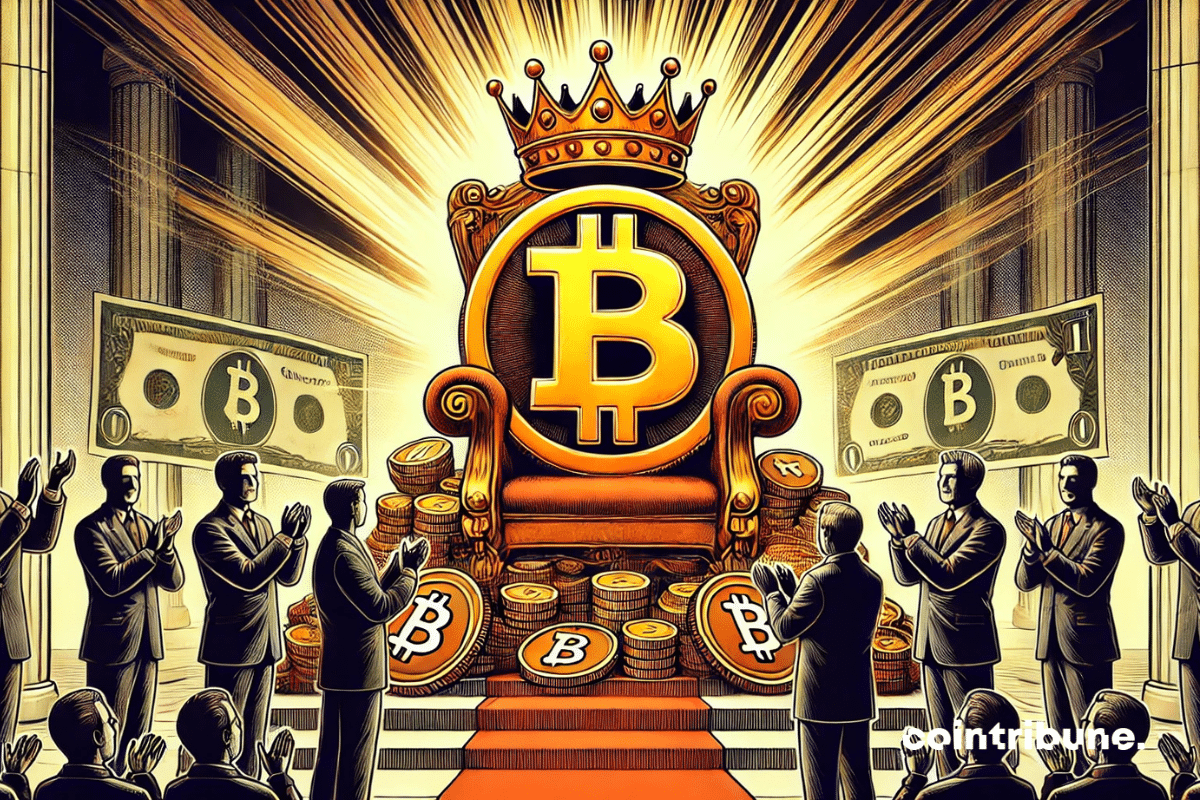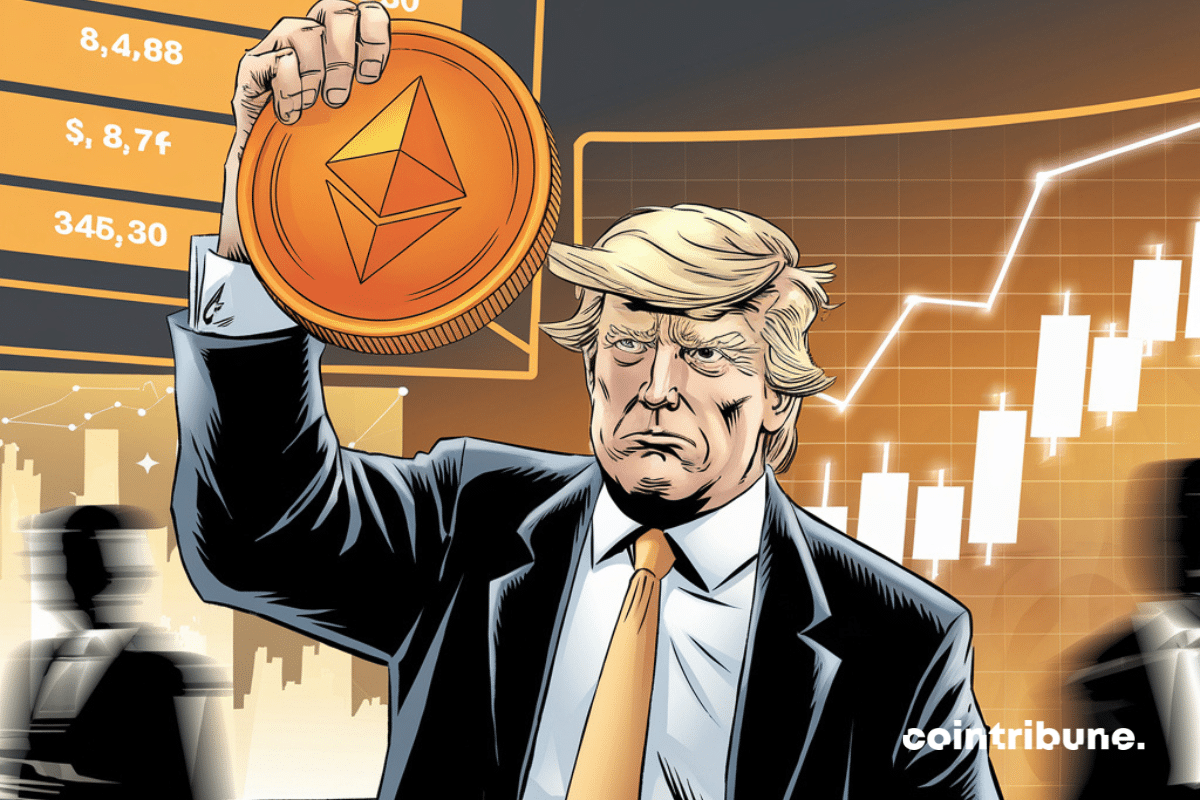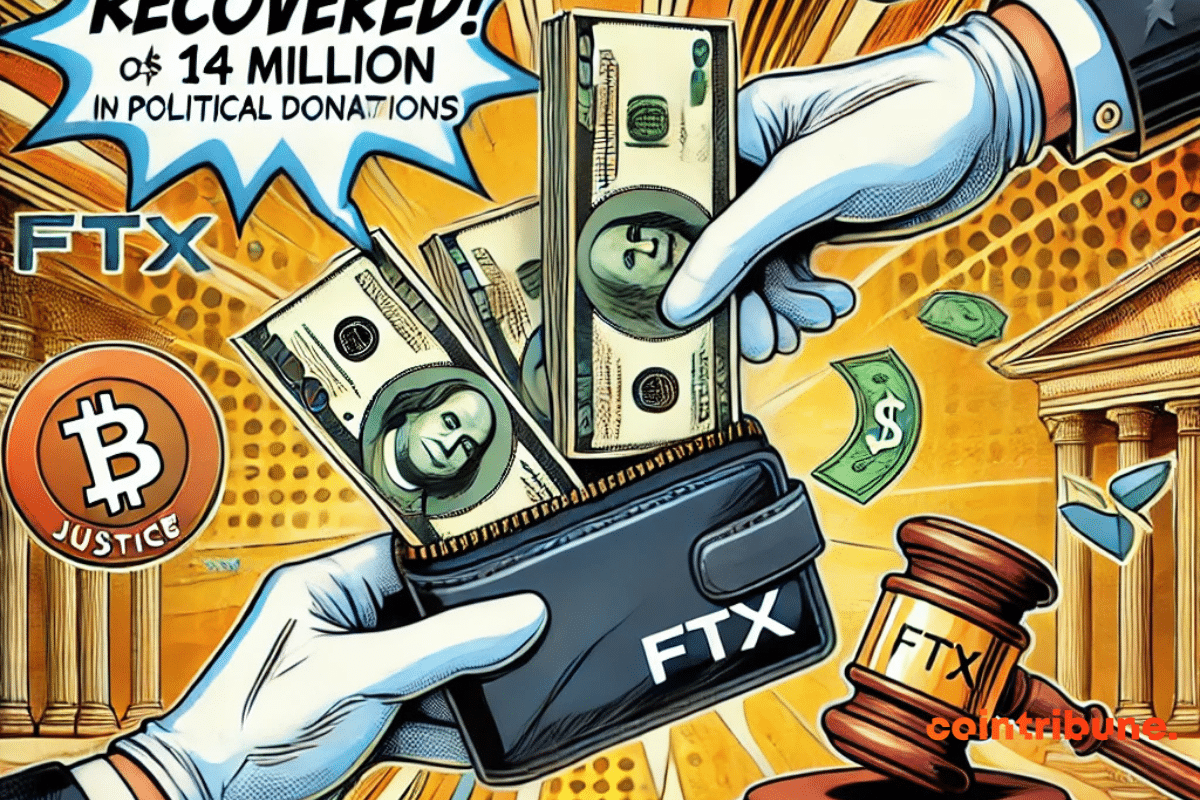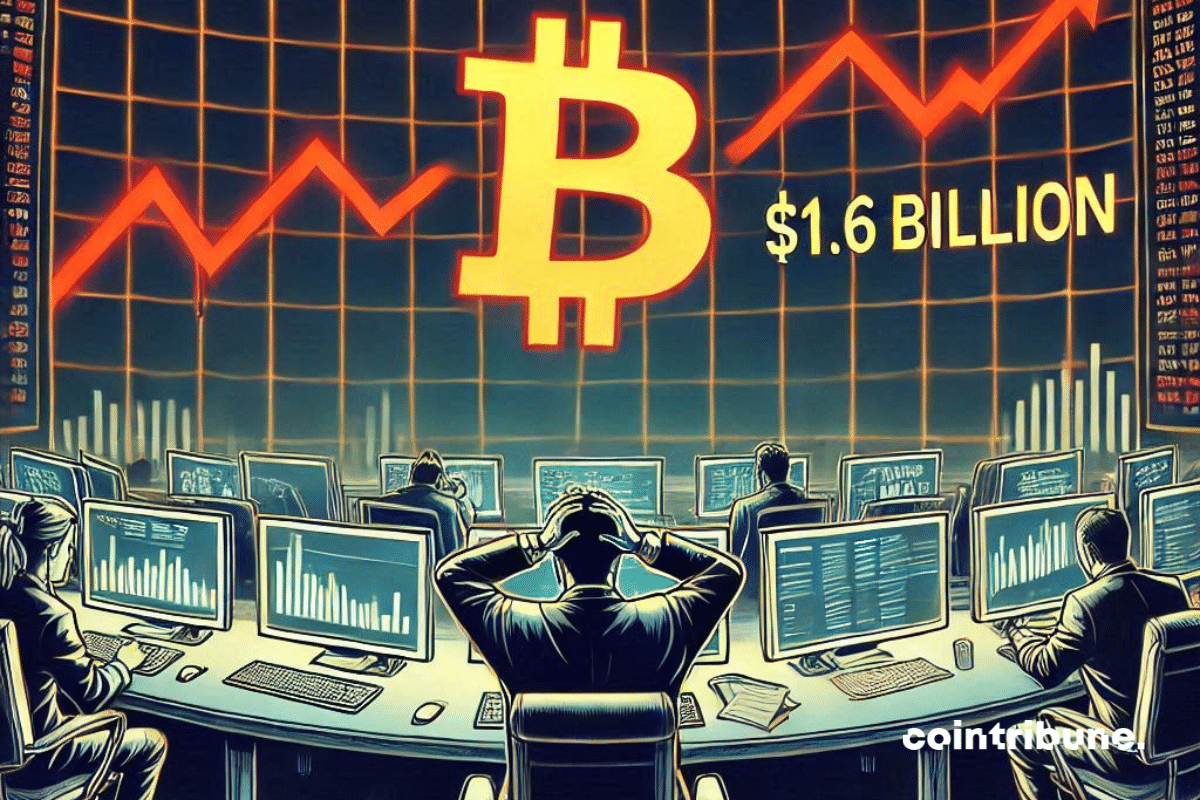Cointribune is launching a new quest this Monday, December 16, 2024, especially dedicated to Read to Earn, which offers you the unique opportunity to learn while earning cryptos. The Read to Earn concept is based on an innovative model where users are rewarded for their engagement and consumption of content. Here’s how this quest works and how you can make the most of it.
Theme Event
Amid whispers of inflation and hopes for growth, the Fed is reshaping its horizons. Powell, with caution in hand, challenges a nascent economic storm.
An unprecedented crisis is shaking the global economy today: large companies, often seen as pillars of stability, are faltering under the weight of record failures. In the third quarter of 2024, 127 companies, each reporting revenues exceeding 50 million euros, declared bankruptcy. This statistic far exceeds the averages observed before the pandemic, revealing a critical acceleration of economic vulnerabilities. Such a phenomenon is set against a backdrop marked by the aftereffects of the health crisis and a rapid rise in interest rates, two factors that have put significant strain on companies' cash flows. At the same time, the end of the support measures put in place during Covid-19 has exposed many companies to increased costs and unavoidable restructuring. These failures, particularly concentrated in Europe, raise questions about the structural limits of certain sectors and the ability of companies to face a rapidly changing economic environment.
The crypto market is buzzing again with optimistic forecasts for Ethereum. While Bitcoin recently reached historical highs, analysts predict that Ether could follow suit and break new records as early as the first quarter of 2025.
A new proposal, advocated by John Carvalho, seeks to redefine the unit of measurement for Bitcoin. The idea? Replace decimal points with a representation in whole numbers, where what we currently consider a satoshi would become the new "bitcoin." This initiative is sparking debate and reflection within the crypto community.
Despite a recent correction in the markets, crypto whales are multiplying their purchases of Bitcoin (BTC), Cardano (ADA), XRP, and Dogecoin (DOGE). This accumulation strategy during a downturn could foreshadow major market developments.
Eclipsed by a cautious market, Bitcoin finds its way between fears and ambitions. Hidden data whispers: patience before the explosion, as every peak conceals the next challenge.
The Polygon community is preparing for a decisive vote on a liquidity proposal that could transform the future of the crypto ecosystem. With an estimated annual revenue generation potential of 91 million dollars, this strategic initiative could mark a significant turning point for the network.
The world of cryptocurrencies is buzzing, and this time, it's XRP that is making the headlines. With an unprecedented flow of 2.66 billion tokens transferred on Binance in 30 days, the "whales" are taking control of the market. But what do these massive movements mean? Are they preparing a storm or a new opportunity?
The crypto market continues to captivate investors and institutions, but a new analysis reignites debates. According to VanEck, a major player in asset management, the year 2025 could be marked by unprecedented movements. Matthew Sigel, head of crypto research, initially anticipates a significant correction in Bitcoin and altcoins over the summer, followed by a rise to historical peaks by the end of the year. These predictions, based on economic signals and cyclical trends, present crucial stakes for the markets, from institutional adoption to changing regulations.
Cryptos are increasingly disrupting the foundations of the global economy, prompting governments to rethink their financial strategies. Among these initiatives, an ambitious proposal is emerging from Japan. Lawmaker Satoshi Yamada has urged his government to explore an innovative idea: to include bitcoin in national foreign exchange reserves. This project, which fits within a growing international trend, is sparking a passionate debate about the use of cryptos as a strategic lever.
Bitcoin has reached a historic milestone with an astounding transaction volume of $131 trillion, signaling massive institutional adoption and unprecedented maturity in the crypto market.
"Between technological shores and headwinds, Nvidia navigates. China strikes, not for a monopoly, but to challenge the hegemony of American chips. A fight where every chip counts."
The world of crypto is adding a new historical chapter. Société Générale, through its subsidiary SG-Forge, and the Banque de France have completed a revolutionary transaction based on the Ethereum blockchain. This repurchase of securities (or repo), the first tokenized operation of its kind involving a central bank in the Eurozone, redefines the prospects for integration between traditional finance and digital innovations.
The Syrian civil war has revealed an unexpected new use of cryptocurrencies in armed conflicts, with increasingly close ties between modern financial technologies and geopolitical issues. A recent survey by the blockchain analysis company Chainalysis sheds light on the involvement of the rebel group Hay’at Tahrir al-Sham (HTS), which reportedly used cryptocurrency donations to fund a decisive offensive against the regime of Bashar al-Assad. These anonymous transactions, which have become common in conflict zones, raise questions about the role of these assets in crisis contexts and the risks they entail.
In a context of increasing volatility, Bitcoin is at a strategic turning point. The latest analyses from CryptoQuant reveal leading indicators that could transform investor outlooks, with significant bullish movement potential.
On the crypto scene, Trump exchanges stablecoins for ETH. A bold move of 5 million that brightens his treasury of 73 million in digital assets.
All eyes are on Beijing, where a major conference is taking place that could redefine China's economic direction until 2025. As the world's second-largest economy faces a lasting real estate crisis, weakened domestic consumption, and renewed trade tensions with the United States, this annual meeting takes on critical importance. At a time when the global economic balance remains precarious, the decisions made here will have repercussions far beyond China's borders.
In the winding paths of the FTX scandals, an unexpected chapter sheds light on the saga: the recovery of $14 million in political donations. This almost surreal return of money could mark a key step in the attempt to rehabilitate the bankrupt cryptocurrency exchange.
For several months, investors have been turning their attention to crypto ETH, hoping for a significant jump in its value. However, forecasts do not seem to favor the giant of smart contracts. According to the onchain options protocol Derive, the probability that Ethereum will reach $5,000 by the end of 2024 is less than 10%. This observation is striking, especially since massive inflows into spot Ether ETFs seem insufficient to reverse the trend.
A fascinating chaos is shaking the crypto world: Coinbase, as an improbable puppeteer, triggers a ballet of $1.6 billion in liquidations, leaving traders and altcoins in tatters.
For years, Bitcoin has established itself as a central topic in economic and financial debates, deeply dividing opinions. For its supporters, it represents a monetary revolution capable of redefining the rules of the global financial system. Conversely, its detractors denounce its volatility and the risks it engenders, deeming it incompatible with prudent investment strategies. Indeed, Microsoft has added a new episode to this controversy. During its annual meeting, the company's shareholders rejected an ambitious proposal aimed at including Bitcoin in the cash reserves of the tech giant. This decision, made in a context of particularly unstable financial markets, raises questions about the role of cryptocurrencies in the asset management strategies of large companies. Between the opportunity for diversification and caution in the face of uncertainty, the debate intensifies and reflects much broader stakes for the future of cryptocurrencies in the global economy.
This week, Bitcoin (BTC) is at the center of attention in the financial markets as three major economic indicators in the United States could disrupt its trajectory. Since the beginning of the year, the correlation between Bitcoin and U.S. macroeconomic data has intensified, making the cryptocurrency sensitive to global economic fluctuations. As BTC hovers just below the $100,000 mark, these indicators could very well be the catalyst for change.
Carried by the winds of liquidity, Bitcoin wavers. The shadow of a storm looms, and traders hold their breath.
On the crypto ring, Cardano dances: 915 million ADA, a waltz that attracts traders and billions, but beware of exhaustion.
The American exchange Coinbase takes a new step in the democratization of crypto assets by integrating Apple Pay as a payment method in third-party applications. This significant advancement now allows users to buy cryptocurrencies directly from their favorite apps.
In the face of intensifying global economic tensions, the central role of the dollar in international exchanges is increasingly being called into question. At the heart of this upheaval, the BRICS nations are seeking to break free from this dependency by exploring alternative solutions. According to economist Jim Rickards, these countries already have an unofficial common currency: gold. This discreet yet strategic approach allows them to bypass the financial pressures exerted by the United States, particularly through economic sanctions. As the United States intensifies the use of the dollar as a geopolitical weapon, the BRICS are mounting a resistance that could redefine the rules of global trade. This strategy raises questions about the future balance of the international monetary system.
After months of lethargy, Ethereum shoots above $4,000, rekindling the hopes of investors in search of a crypto saga worthy of Norse epics.
Lawrence Summers, former Treasury Secretary under Clinton, sharply criticized Donald Trump's proposal to create a strategic reserve of bitcoin. This stance comes against the backdrop of an intensifying debate on cryptocurrency regulation within the American political class.
In a resounding statement, Cathie Wood, CEO of ARK Invest, emphasizes the untapped potential of bitcoin despite its recent historic surpassing of $100,000. The finance visionary compares the soaring trajectory of cryptocurrency to that of giants like Apple and Amazon, suggesting that the best is yet to come.

